44 Of The World’s Most Ethical Companies
Written by : Nikola Gemeš | Last Updated: March 21, 2024
Contents
ToggleMore customers now choose to support ethical brands that provide equal employment, fair wages, a transparent supply chain, and measurable environmental efforts. These companies are doing it right.

For a generation of Americans that accounts for more than $1 trillion in consumer spending, buying is more than just a transaction. For Millennials and Generation Z, every purchase is a chance to make a difference.
These young people often choose to support ethical companies that promote transparent and ethical business practices, use sustainable materials, and are aware of their social impact.
While for some brands, ethics equals reducing risks by “doing no harm,” other companies have realized a huge potential of business ethics.
Let’s look at some of the world’s most ethical companies, as well as honorable mentions.
Please note that all logos and trademarks displayed on this blog are the property of their respective owners. They are used here solely for the purposes of discussion and commentary.
24 Most Ethical Companies
1. Aflac Incorporated - 16 Times Honoree
Aflac is the largest provider of supplemental insurance in the US. It is the only insurance company that has been an Ethisphere honoree for 16 consecutive years.
One year after issuing its first sustainability bond, the company has allocated $252 million to Framework categories like Communities, Green Buildings, Renewable Energy, and Socioeconomic Advancement and Empowerment. (Sustainability Bond Report 2021)
Aflac’s policy of fair employment starts at the top, as 64% of its board members are ethnic minorities or women.
In the previous years, Aflac has contributed more than $172 million to help children with cancer in the US and Japan.
2. Ecolab - 16 Times Honoree
Another 16 times honoree, Ecolab is the global leader in water, hygiene, and infection prevention solutions and services with nearly three million customer locations.
Using data-driven insights and premium service, Ecolab is a partner in more than 40 industries — from restaurants and hotels to power and manufacturing facilities.
Their strategy is based on chemistry and digital technology working hand in hand to deliver customized solutions that minimize human and environmental impact.
In 2019, Ecolab solutions helped their worldwide partners:
- Conserve 206 billion gallons of water.
- Prevent more than 7.5 million foodborne illnesses a year.
- Avoid 1.5 million metric tonnes of greenhouse gas emissions.
3. International Paper - 16 Times Honoree
One of the leading producers of fiber-based products, International paper has a long roster of ethical and sustainable practices contained in the so-called IP Way Forward.
This way of doing business is based on sustaining forests, investing in people, and improving our planet, all at the same time while creating innovative products and inspiring performance.
Through responsible forestry, IP is ensuring the health of forest ecosystems. One of their targets is to be able to source 100% of their fiber from sustainably managed forests by 2030.
In 2020, the company has achieved a 26% reduction in manufacturing waste being sent to landfills.
4. Kao Corporation - 16 Times Honoree
Since its foundation in 1887, Kao has always put their customers first. This spirit reflects in their Environmental, Social, and Governance strategy known as Kirei.
Kirei means “living a beautiful life inside and out”. It has three principles:
- Making my every day more beautiful
- Making thoughtful choices for society
- Making the world healthier & cleaner
Kao definitely puts their money where their mouth is.
Using leftover material from extracting edible palm oil, they developed Bio IOS, a sustainable surfactant to be used in cleaning products.
Kao Corporation is constantly developing products that encourage consumers to use refill packs and concentrated products, aiming for zero waste.
5. Milliken & Company - 16 Times Honoree
Milliken is another industrial manufacturer that routinely makes it to the most ethical companies in the world list.
Even though their products are meant to make the world healthier and better, their ethical work goes much beyond their chemicals and textiles.
Proud of its environmental responsibility, Milliken has developed ambitious corporate sustainability goals for 2025, including:
- An inclusive community of associates.
- Reduce greenhouse gas emissions, water usage, and solid waste by 25%.
- Zero waste to landfills.
- Increase in renewable energy use 10x.
- New products based on Life Cycle Analysis principles.
6. PepsiCo - 16 Times Honoree
There’s little more to say about one of the world’s most ethical companies. Managing a formidable beverage and food portfolio. PepsiCo puts sustainability at the center of its growth and creating value.
PepsiCo is applying sustainable agricultural practices which include using cover crops to help sequester carbon and build soil health.
Their Net Water Positive ambition looks to reduce absolute water use and replenish into the local watershed more than 100% of the water used at company-owned sites.
Sustainability extends to their product packaging, as the company is helping innovate the future of packaging, improve recycling infrastructure and educate consumers.
7. Accenture - 15 Times Honoree
This multinational professional services company is a world leader in services ranging from artificial intelligence and automation to infrastructure and sustainability.
Aiming to become one of the top 10 most ethical companies in 2022, Accenture has made sustainability one of its greatest responsibilities.
Accenture helps their partners make net-zero transitions, from creating more efficient buildings to transport to green energy systems.
Through its Responsible Citizen program, the company continues to support those most impacted by the pandemic, as well as provide employment and entrepreneurship opportunities around the world.
8. Cummins - 15 Times Honoree
Developing power solutions for a range of industries, Cummins is keeping pace with the most ethical companies.
Since 2014, more than 21.7 million metric tons of carbon dioxide were cumulatively reduced from Cummins products in use. 35 Cummins sites have achieved the company’s standard for zero disposal in 2020.
At the same time, the company has achieved a record recycling rate of 93%, while also reducing annual water use by 20%.
Finally, in 2020, Cummins has taken on more than 800 new employees working on low- and no-carbon technologies.
So if you're looking for ethical companies to work for, Cummins is definitely worth a shot.
9. Deere & Company - 15 Times Honoree
Relying on more than 180 years of experience and terabytes of customer data, John Deere knows their customers better than anyone else.
This is why Deere aims for occupational safety through carefully watching for lead indicators, risk reduction, and health & safety management systems.
In 2020, the company was looking to reduce CO2 emissions on 90% of its products. increase the use of sustainable materials, and recycle 85% of total waste. In the previous year, Deere has seen an increase of women in global management positions as well as an increase of non-white employees in US management.
10. JLL - 15 Times Honoree
JLL is a world leader in real estate services that is employing ambitious people and looking for equally ambitious clients.
And when you have such dedicated management, it’s easy to make it to the most ethical companies list.
Through their sustainability program, JLL is helping their clients transition to net-zero and create safe and healthy living and workspaces that promote productivity, wellbeing, and sustainability.
The company is also providing fair and inclusive places that create positive social impact and equal opportunities.
On the employee side, JLL has a very clear whistleblower and non-retaliation policy.
Employees are encouraged to report any unethical conduct or activity ranging from breach of industry norms to unfair competition and insider trading.
11. Johnson Controls - 15 Times Honoree
Making buildings smarter since 1885, today Johnson Controls uses a range of systems and digital solutions that makes living and workplaces safer, more comfortable, more efficient, and more sustainable.
Although their sustainable journey began when they invented the electric thermostat in 1885, Johnson Controls are continuously improving their environmental efforts.
In only three years, the company managed to reduce its energy intensity by 5.5% and greenhouse gas emissions intensity by 26.1%.
To their clients, Johnson Controls is offering building optimization solutions that deliver considerable energy savings followed by a drop in CO2 emissions.
12. Premier, Inc. - 15 Times Honoree
A long-time champion of highly ethical companies lists, Premier understands the importance of environmental, social, and governance practices, making them part of its business goals.
They take a two-pronged approach to environmental management:
- Ensuring their own corporate operations protect and improve the environment.
- Identifying and helping their clients choose responsible products and services which are safe and effective, and yet minimize their environmental impact.
In a rapidly evolving healthcare industry, Premier is collaborating with more than 4,400 hospitals and 225,000 providers to improve the way care is delivered.
Such endeavors are only possible with a workforce that represents the diversity of thought but also represents different generations, ethnicities, genders, races, orientations, cultures, and life experiences.
13. Kellogg Co. - 14 Times Honoree
The King of Cereal has a long-standing history of sustainable and ethical practices. This is definitely a company others can look up to if they want to make it to the world's most ethical companies list.
Even in 1906, the first box of Corn Flakes came in 100% paperboard packaging. Today, they continue this legacy by working towards 100% reusable, recyclable, or compostable packaging by 2025.
However, folks in Kellogg are aware that sustainability should start way earlier. This is why they provide training and technical aid to farmers and workers around the world. The goal is to help them increase productivity, regenerate soil, protect species and habitats, and improve their livelihoods.
14. Paychex, Inc. - 14 Times Honoree
Paychex, Inc, is a leading provider of integrated human management solutions for payroll, benefits, human resources, and insurance services.
Their Putting Good to Work policy includes giving back to local communities, supporting their employees beyond the workplace, and improving their environment at work and in the community.
In 2021, 9,087 employee hours were committed to ethics and compliance training, while 99.2% of employees complete a multi-media curriculum focused on ethical behavior each year.
Nearly, 13,850 units of electronics were recycled company-wide in the same year. Paychex has also eliminated paper from 19 sales and service training programs.
This effort saves 190,000 sheets of paper a year!
15. Rockwell Automation - 14 Times Honoree
A leader in industrial automation and digitization for a number of industries, Rockwell Automation makes it to the most ethical companies list by helping others make the world more productive and more sustainable.
To that end, their 2021 Sustainability Report is impressive.
The company has generated $1.8 billion of revenue from energy efficiency-related products.
Thanks to high workplace safety standards, the workplace-related injury rate was only 0.27 per 100 employees.
Nearly $256 million was spent with diverse suppliers including small businesses, veterans, minorities, women, and LGBTQ-owned US enterprises.
16. Starbucks - 14 Times Honoree
Welcoming millions of coffee connoisseurs each week, Starbucks is a household name for a coffeehouse.
And in the company they are well aware that with popularity comes great social and environmental responsibility.
Since Starbucks buys 3% of the world’s coffee beans, it makes sure that 99% of it is ethically sourced. However, their program extends to giving back to communities where the coffee comes from.
The company has a rich portfolio of resource conservation.
Apart from expanding plant-based menu options, their 2030 commitments include replacing single-use with reusable packaging, and investing in more responsible stores, and supply chains.
17. L’Oréal - 13 Times Honoree
L’Oréal believes that the quest for beauty goes beyond mere appearance — into a sense of belonging and self-realization.
This is why the program called “L’Oréal for the Future” embodies their view as to what a company’s responsibilities towards environmental changes should be.
For more than 20 years, the company has worked to reduce CO2 emissions related to its industrial activities. By 2025, 100% of all sites will be carbon neutral.
By that time, L’Oréal plans to completely replace single-use packaging with refillable, reusable, recyclable, or compostable alternatives.
For over 40 years, L’Oréal has said “No” to testing on animals.
18. ManpowerGroup - 13 Times Honoree
From contingent and permanent staffing to talent management and outsourcing, ManPower Group is helping its clients address the complex workforce challenges of today.
For more than 70 years, they have believed that sustainable employment can change the world. Now this company extends its belief to a series of science-based targets.
ManpowerGroup commits to cutting greenhouse gas emissions and plans to reach net-zero by 2045 or sooner.
Throughout the pandemic, they have leveraged their expertise, technology, and partnerships to help employees safely return to work. The company has also supported 26,000 of its global employees with the launch of the OneLife Wellbeing program and a suite of wellness programs.
19. Parsons Corporation - 13 Times Honoree
A digitally enabled solutions provider, Parsons Corporation has made it to the best ethical companies list by holding people as its greatest asset.
To that end, the company has a strong inclusion and diversity program with a special commitment to veterans and transitioning service members.
With sustainability as one of its core values, the company implements best practices to minimize its carbon footprint.
Partnering with property owners in their leased office spaces, they implement energy-saving lighting and HVAC retrofits. To reduce transportation emissions, Parsons allows employees to work from home on a part-time or full-time basis.
20. Salesforce - 13 Times Honoree
Running the world’s #1 customer relationship management (CRM) platform, Salesforce helps marketing, sales, and IT teams work as one from any location.
Adhering to its cloud-based philosophy, Salesforce has net zero emissions across the full value chain, alongside achieving 100% renewable energy for its operations.
Through their automated eCommerce solutions, Salesforce is helping the world’s largest businesses transition to net-zero while sequestering 100 gigatons of carbon.
As a founding partner of 1t.org, the company is committed to planting 1 trillion trees and protecting the ocean, which is one of the largest carbon sinks on our planet.
21. Teradata Corporation - 13 Times Honoree
Teradata is a multi-cloud data platform company that transforms how businesses work and people live through the power of data.
The company is committed to addressing global environmental challenges by launching and taking part in initiatives that improve business sustainability with a focus on energy, carbon emissions, waste, and water.
The same level of integrity to which Teradata holds itself also extends to its suppliers. Their supply chain management addresses human rights, supplier diversity, and sustainable mineral sourcing.
To reduce the environmental impact of its operations, the company is pioneering programs for video conferencing, virtual employment, recycling, and energy conservation.
22. The Hartford - 13 Times Honoree
The Hartford is a leader in property and casualty insurance, group benefits, and mutual funds.
Apart from customer service excellence, trust, and integrity, the company is widely recognized for its sustainability practices that secure its place on the world's most ethical companies 2022 list.
This shouldn’t surprise us if we know that sustainability has been at the core of their business for more than 200 years. When a disaster hits, Hartford is ready to provide durable solutions.
The company has made $2.5 billion in new investments made over the next 5 years that will have a positive impact on clean energy transition and climate.
23. Weyerhaeuser Company - 13 Times Honoree
Weyerhaeuser is managing the most sustainable, versatile resource on earth — forests. While using trees to craft products that people need, the company does it the right way so that forests stay forever.
Recognizing that lands and habitats have special value to people who live in nearby communities, Weyerhaeuser works with environmental, recreation, and wildlife organizations to ensure conservation transactions.
This 13-time Ethisphere honoree also grants easements on its land to reputable businesses that identify, premier, and build wind and solar projects.
24. WM - 13 Times Honoree
More than just a waste management company, WM is helping people and businesses achieve their sustainability goals.
Driven by a focus on maximizing resource value while minimizing environmental impact, the company is tackling climate change and social inequities on different levels.
Their collection trucks run on compressed natural gas (CNG) as they roll in and out of neighborhoods where they pick up waste for recycling.
Former reclaimed landfills are becoming solar fields with prime locations, as they are always close to existing infrastructure.
Honorable Mentions: Are These Well-Known Companies Ethical?
Here are some of the honorable mentions. These industry leaders are relatively new in the club of top ethical companies.
However, their dedication and unwavering pursuit of social justice and sustainable practices are already making change and motivating many others to join the cause.
- Apple
- AT&T
- Best Buy Co., Inc.
- Canon U.S.A.
- Colgate-Palmolive Company
- Dell Technologies
- General Motors Company
- Hasbro, Inc.
- Hewlett Packard Enterprise
- Honeywell International Inc.
- IBM
- Intel Corporation
- Kohl's
- Mastercard
- Microsoft Corporation
- Nokia
- Pfizer Inc
- Sony Group Corporation
- U.S. Bank
- Visa Inc.
FAQ
What is an ethical company?
An ethical company is a company that has clearly defined Environment, Social, and Governance principles. Ethical companies cause little to no damage to the environment, offer equal employment opportunities for all people, don't discriminate against their employees on any basis, pay fair wages, and produce environmentally safe products.
Is Tesla an ethical company?
No, Tesla is not an ethical company. Although the company states that all supply chain practices are safe and humane, the company has been under criticism for a history of environmental violations and disregard for workers’ safety.
Is H&M ethical in 2022?
No, H&M is still not ethical in 2022. The company aims to reduce its emissions and use 100% recycled or sustainable materials by 2030, but it still fails to deliver on labor conditions and living wages. The fast-fashion business model that H&M currently uses still remains questionable from an ethical standpoint.
Is Nike ethical?
No, Nike is not ethical. It has definitely made positive changes to its environmental practices, but it still has a way to go before we can truly call it an “ethical” brand. Nike uses some eco-friendly materials, but there’s no evidence it guarantees living wages in most of its supply chain. In 2021, Nike received a score of 51-60% on the Fashion Transparency Index, showing it has started going in the right direction.
How ethical is Starbucks?
Starbucks is a very ethical company. A 14-time honoree of the Ethisphere magazine, this coffeehouse giant is investing heavily in sustainable agriculture and water-saving practices. Apart from phasing out single-use cups, Starbucks has recently launched recycling apps to help partners navigate store recycling guidelines.
What is the most ethical clothing brand?
The most ethical clothing brand is Patagonia. This company is one of the earliest flag carriers of environmental ethics in the industry best known for its Fair Trade outdoor clothing. It was one of the first to use recycled materials and organic cotton. In 2022, Patagonia is expanding its commitment to labor ethics and works with US factories as often as it can.
What food companies are ethical?
Among the most ethical food companies in the world are Kellogg’s, PepsiCo, Starbucks, Grupo Bimbo, Illycaffe Spa, Ingredion, and Mars.
What are ethical products?
Ethical products are those that do not cause any harm to the consumers or the planet. Ethical products do not encourage addictive behavior or promote harmful information. Ethical products do not contribute to climate change and pollution in any of their stages.
Is Coca-Cola good for the environment?
No, Coca-Cola is not good for the environment. The company strives to treat and return 100% of its manufacturing water back to the environment and use minimal packing but environmental organizations still list it among the worst companies for plastic pollution in the world.
How sustainable is Starbucks?
Starbucks is very sustainable. Year after year, the company is building up its sustainability record. It aims to halve water usage in green coffee processing by 2030. This is one step towards its ultimate goal of becoming resource positive, which means storing more carbon than it emits, eliminating waste, and providing more freshwater than it uses.
Is H&M Conscious sustainable?
No, H&M Conscious is not sustainable. Those products are marketed as using up to 50% recycled material (20% for cotton products), but their explanation is lacking in detail about the types of items they’re recycling, how they’re recycled, and what the carbon footprint is compared to their other ranges.
Conclusion
Ethical companies are different from green or eco-friendly companies in the sense that their sustainability statement also includes social responsibility, such as fair wages, a transparent supply chain, and good working conditions.
If you’d like to work at a company that’s similar to the ones on this list, you can visit our Green Jobs board for available ethical jobs in your area.
Nikola Gemeš
Nikola, an electrical engineer, simplifies intricate sustainability subjects for his audience. A staunch environmental conservationist, he embodies his beliefs daily through recycling and cultivating his own food.
| Thank you for Signing Up |


Category: Business & Policies, Environmental Jobs, Green Blog, Green Industry, Home Business & Policies, Most Popular
11 Comments on “44 Of The World’s Most Ethical Companies”
Services(United States)
For Businesses
Copyright © 2024 · All Rights Reserved · GreenCitizen

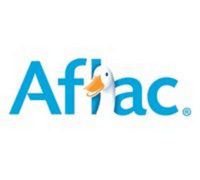
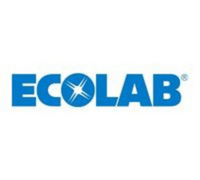
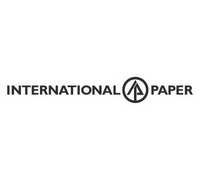
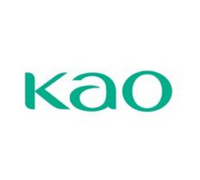
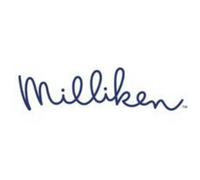
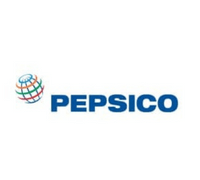
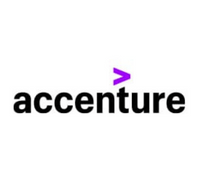
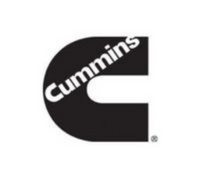
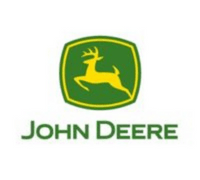
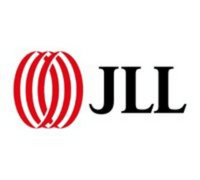
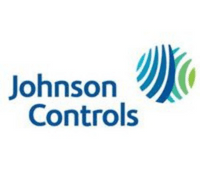
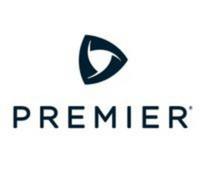
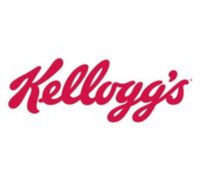
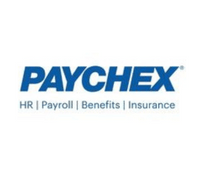
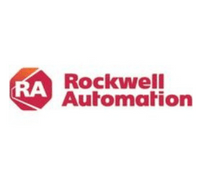
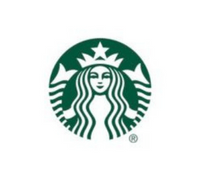
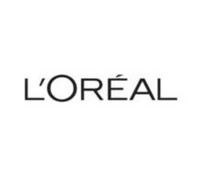
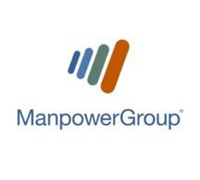
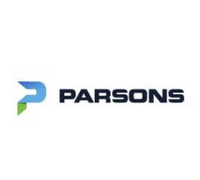
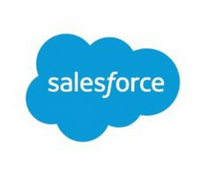
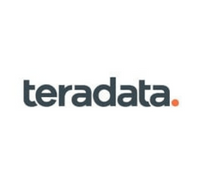
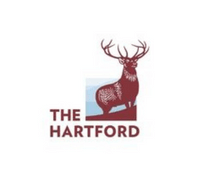
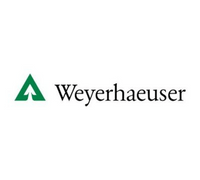
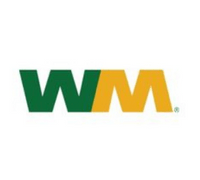







Accenture is not an ethical company. They trick their employees into working harder for a bonus that they end up withholding. They also have an acute lack of spine, based on the conversations I’ve overheard. I have a family member who used to work there for a while, and was duped by those crooks.
Pingback: Why Ethics Important in Business? - FIND INSIGHTS
Pingback: 7-1 Blog: Green for Profit or Green for the Environment? – ThisOneChik's Blog
Pingback: Calling for Morality Checks on Large Companies – Wgst210-haleykl
Pingback: How To Be More Ethically Aware – Break Out Of The Box
How about Paychex?
How ethical is The Body Shop, London, Uk?
Pingback: A Point of View: The Intersection of Reasonable Accommodations and Servant Leadership | The Inclusion Solution
How ethical is Pfizer?
Pfizer promotes only the highest standards of ethical behavior, industry compliance, and personal integrity in everything they do. With exacting policies and procedures, industry-leading training programs and internal monitoring and auditing, they are committed to complete and ethical accountability.
Pingback: Are Your Investments Ethical? | Worth Not Weight